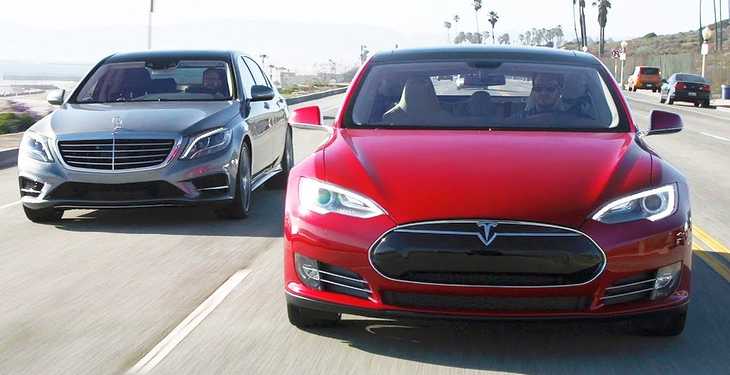Chris Bryant
If a liberal arts major tries to tell you that business lacks poetry, remind them of this German-American saga. In 2009 Tesla Inc. looked like it might run out of money. CEO Elon Musk was borrowing from friends just to cover his rent. Salvation came from luxury car titan Daimler AG, which invested $50 million for a 9 percent stake in the electric car startup. Musk says without Daimler’s riches Tesla would have been tossed on the funeral pyre, writes Bloomberg.
Fast forward eight years and Tesla’s enterprise value is bigger than Daimler’s, according to Bloomberg data (which makes various adjustments, including for the debt in Daimler’s massive financial services unit).
As a tale of patronage punished, it’s powerful stuff. Especially when you consider that Daimler’s mighty Mercedes-Benz unit sold two million cars for the first time last year. Tesla sold fewer than 80,000.
It’s not just Detroit
Tesla’s enterprise value is now higher than Daimler, its erstwhile savior. But Daimler is entitled to feel particularly aggrieved. In the first three months of 2017 alone, it generated 4 billion euros ($4.25 billion) in earnings before interest and taxation, according to preliminary figures released on Tuesday evening. True, the results were flattered by one-off items, yet the Mercedes division still delivered a very respectable 9 percent adjusted operating margin. You won’t need reminding that Tesla loses money and burns cash with abandon.
Yet Daimler’s enterprise value equates to just 2.5 times this year’s estimated EBITDA, whereas Tesla’s is almost 50 times.
Ironically, one reason investors demand a discount to purchase Daimler shares is because it’s spending heavily on plants and technology. In 2017 and 2018, capex and R&D spending will total about 30 billion euros. And why’s it doing that? Well, partly because Tesla has forced Daimler and rivals to finally take electric vehicles seriously. Daimler is planning 10 new electric cars, to make sure up to one-quarter of its sales are electrically powered by 2025.
CEO Dieter Zetsche won’t entirely regret helping out Musk. Daimler booked a tidy $780 million profit on its investment when it sold the Tesla shares in 2014. Last month, Zetsche praised Tesla for freeing the electric car of its “granola image”. Still, he might reasonably wonder why shareholders applaud Tesla for investing lots of money, but punish Daimler.
Indeed, investors might be seen as the gods in this particular epic drama. And as Daimler can attest, the gods are often cruel and unfair.
